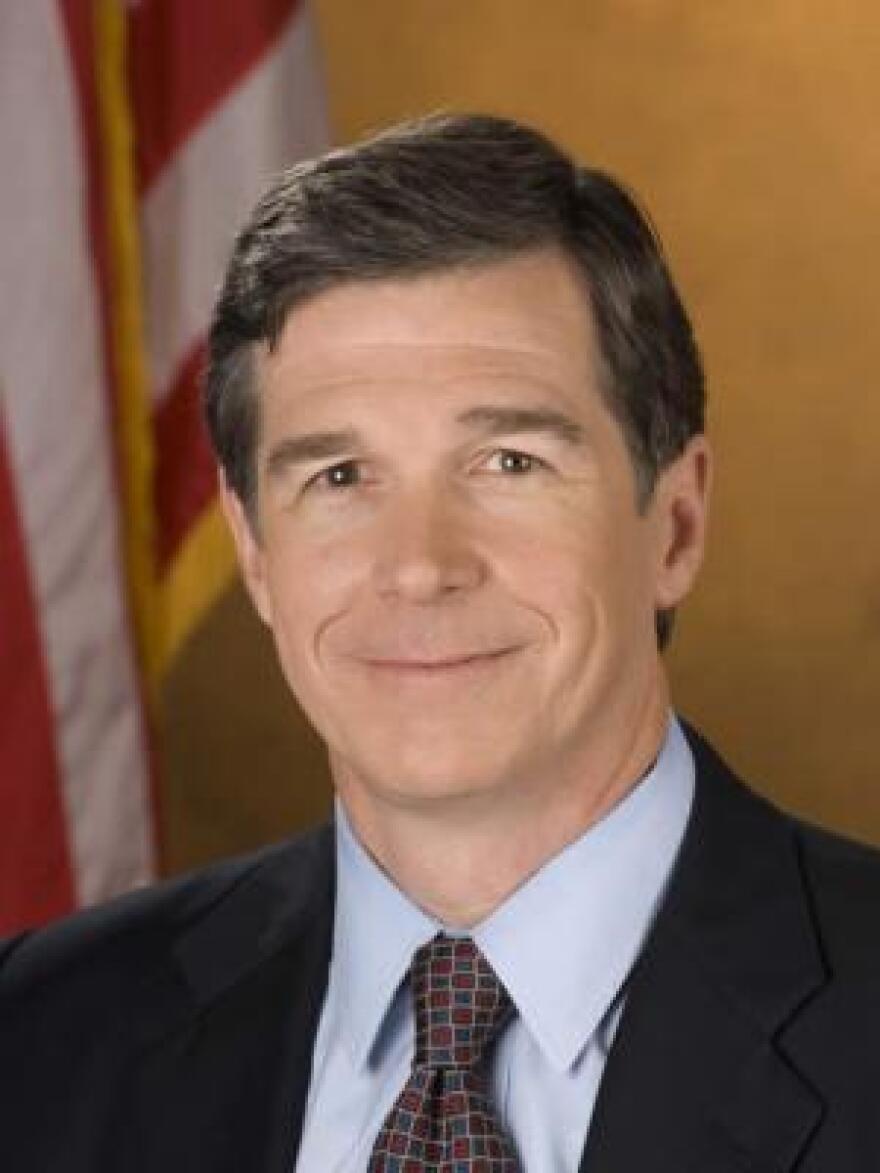North Carolina Attorney General Roy Cooper will no longer defend the state's ban on same-sex marriage. Cooper made that announcement Monday after the federal appeals court that sets the precedent for North Carolina and several other states ruled Virginia's same-sex marriage ban is unconstitutional.
A three-judge panel ruled Monday that Virginia's laws banning same-sex marriage "impermissibly infringe on its citizens fundamental right to marry."
That panel is from the U.S. Court of Appeals circuit that includes the Carolinas, the Virginias and Maryland. It's one step below the Supreme Court.
At a press conference, Attorney General Roy Cooper said the appeals court ruling sets a clear precedent for any judge in North Carolina.
"We believe that judge will be bound to find North Carolina's marriage law unconstitutional," he said.
Cooper said his office has come up with every argument it could to defend North Carolina's ban against lawsuits.
But he said that since a Supreme Court decision one year ago struck down the federal Defense of Marriage Act, federal judges in 14 district courts and two appeals courts have heard arguments similar to North Carolina's.
"All federal courts have rejected these arguments each and every time," he said, "so it's time for the state of North Carolina to stop making them."
Cooper's decision doesn't surprise Tami Fitzgerald. She was chairwoman of the Vote for Marriage campaign that helped get the North Carolina ban passed two years ago.
Fitzgerald said she's not surprised because Cooper has said publicly he supports same-sex marriage, and that he's running for governor as a Democrat.
"Apparently the attorney general is beholden to the gay lobby and all that money he hopes to get when he runs for governor," she said. "Good luck running in a state that passed a marriage amendment by 61 percent."
North Carolina voters passed that amendment, commonly called Amendment One, with about 61 percent voting for it and 39 percent against it.
Frank Turek is a North Carolina author who supported the amendment.
"If judges continue to overrule laws properly decided by a majority of people in a given state, then we no longer have the capacity to govern ourselves," he said.
South Carolina voters also passed an amendment banning same-sex marriage, and Attorney General Alan Wilson said he'll continue defending his state's ban despite the federal appeals court ruling.
Attorney General Cooper said North Carolina lawmakers could hire their own attorneys to defend Amendment One. But he said that'd be pointless.
"It's time to stop making arguments we will lose, and instead move forward knowing that the ultimate resolution will likely come from the United States Supreme Court," he said.
Cooper said his decision does not mean that same-sex partners can get married in North Carolina. There are several steps that would have to happen first.
John Szmer teaches constitutional law at UNC Charlotte and researches the U.S. Appeals Court. He said the likely first step is an appeal of the three-judge ruling in the Virginia case.
"They could appeal to all 14 judges - or all the active judges on the 4th Circuit - and then they could either agree with the three-judge panel or reverse the decision of the three-judge panel," he said.
Or Szmer said attorneys in the Virginia case or similar appeals court cases from Utah and Oklahoma could appeal straight to the Supreme Court.

